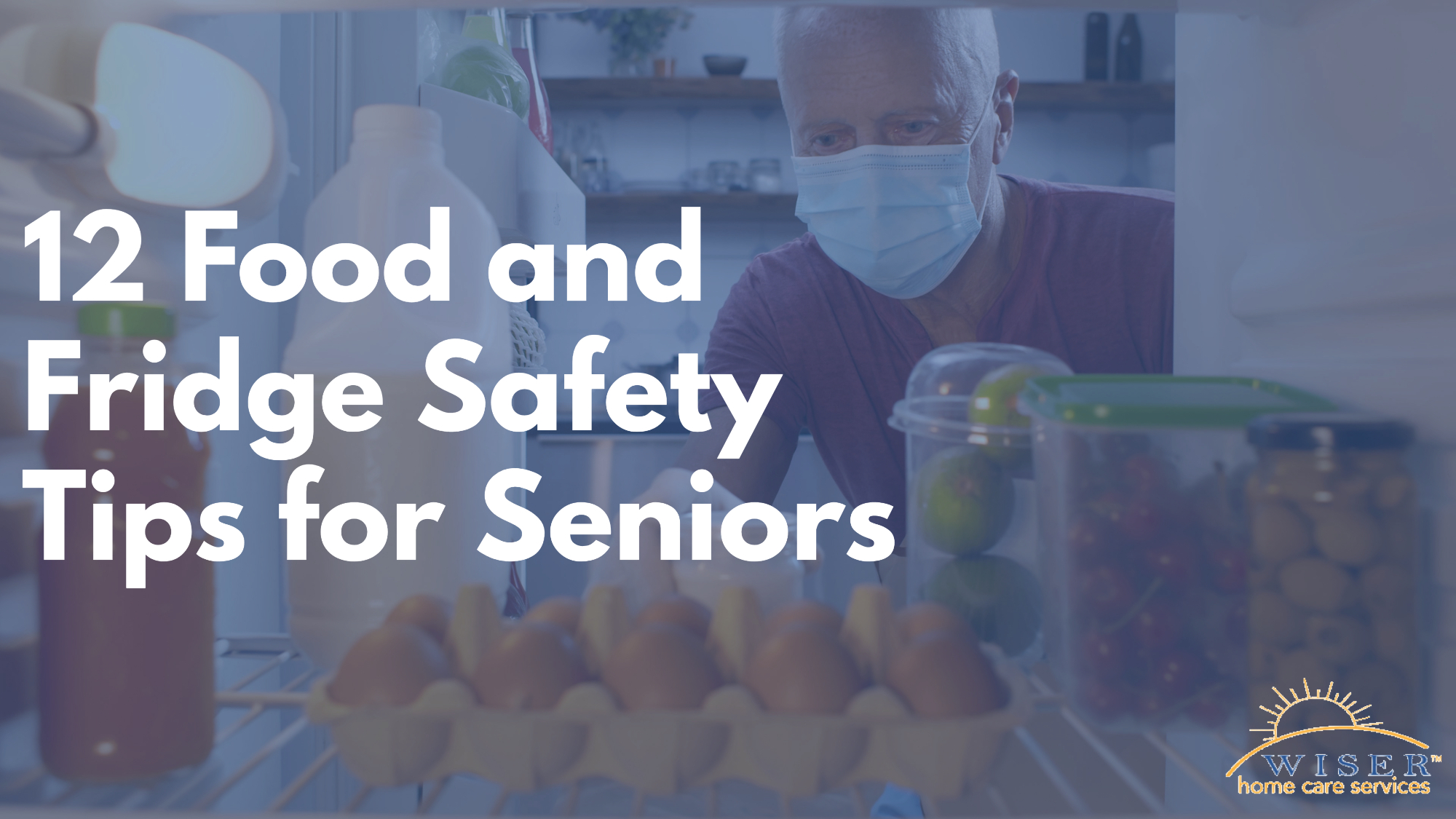Did you know that each year nearly 48 million people in the United States fall sick with a food borne illness? That’s one in every six Americans.
Further, according to Foodsafety.gov, people aged 65 and older are at a higher risk for hospitalization and death due to food borne illness. This is due to the fact that, as we age, our organs and body systems go through changes that make us more susceptible to food sickness.
Keep reading to learn the 12 most important tips regarding food and fridge safety for seniors.
Choose the Right Fridge
If you’re in the market to purchase a fridge for your loved one, there is no doubt you have noticed the wide variety of options available. To start, we recommend a fridge with freezer and fridge components side-by-side. This will make it easier for your loved one to select food from either section without having to bend over or reach high. If it is in your budget, there are several smart fridge options that help remind seniors when to replenish their food.
Fridge Maintenance
To keep your loved one’s food safe, it is important to make sure the fridge is in proper working order. Regular maintenance can go a long way. This includes having the condenser coils cleaned annually, defrosting the freezer once a year, and regular water dispenser filter changes.
Clean the Fridge
If there are any leaks or spills, make sure the fridge is cleaned as soon as possible to reduce risk of contamination and bacterial growth. We also recommend wiping the fridge out with warm soapy water and a clean rag on a regular basis. Once finished, dry the fridge with a new rag.
Shine that Light Bright
Along with regular maintenance, it is important for your senior’s fridge lighting to be bright and working properly. This will allow them to see what is in the fridge easier and make the proper selections.
Check That Date
As we age, our appetites lessen and sometimes that means food spoils before we have the chance to eat it. It is critical to regularly check the expiration dates on foods in your senior’s fridge and pantry. This will minimize the likelihood of food borne illness.
Don’t Touch That Dial
Make sure the temperature for both the freezer and fridge are set properly, then leave them be. Experts recommend setting the fridge to 40ºF and your freezer to 0ºF to ensure the food is stored outside the danger zone.
Break out the Label Maker
Sometimes it can be difficult for our senior loved ones to remember when they open food and store it in the fridge. Labeling the can, jar, or Tupperware with the date of open and ‘use by’ date will help mitigate this issue.
1, 2, 3, 4, Toss
We know it might be tempting to keep leftovers until they are finished but this is a good way to increase food borne illness risk. The general rule is to toss leftovers after 3 to 4 days in the fridge.
Don’t Wait, Refrigerate
Make sure your loved one puts unused food back in the fridge as soon as possible. No food should be left at room temperature for more than 2 hours. And, if room temperature is higher than 90ºF, then it cannot be left out for more than 1 hour.
Don’t Thaw on the Counter
If your loved one plans to make something from the freezer for a meal, make sure they plan ahead of time and thaw the food in the fridge rather than on the counter to avoid bacterial growth.
Rinse, Wash, Repeat
When prepping food, it is important to wash the cutting board and knife with warm soapy water before prepping different food items, i.e., meat and veggie prep. In addition, it is important to always rinse veggies and fruit before consumption.
Reheat Thoroughly
If your senior plans on eating leftovers for dinner, make sure they reheat the food thoroughly and evenly to 165ºF or bubbling hot. This prevents any cold spots where bacteria could be living.
We hope these tips help keep your senior safe from food borne illness. As always, if you care for an elderly loved one and would like help developing a care plan of any kind, please feel free to contact us. We can help your family establish a care plan to personally accommodate your loved one’s needs.
Click here to request your free care assessment.

